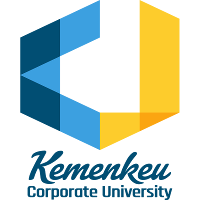PLASTIC TAX AND CIRCULAR ECONOMY INCENTIVES TO TACKLE CLIMATE CHANGE (INDONESIAN CONTEXT)
Abstract
The use of plastic can harm the environment and contribute to climate change. Later, climate change will reduce the quality of ecosystems, public health and a region's economy. The use of plastic needs to be reduced, especially for single-use or only plastic with a short useful life. One way to control the use of plastic is through a plastic tax, which in this study is categorized as an excise. This research aims to determine what tariff is appropriate for the Indonesian context, which will soon impose an excise on plastic. This study also provides an overview of state revenues from related plastic excise and incentives that can be given to business actors implementing a circular economy. Next, this research uses a qualitative descriptive research method. This study estimates the amount of excise and tax revenue from implementing plastic excise. The study results show the enormous potential for state revenue from plastic excise and import tax increases. Furthermore, synergistic activities carried out by Ministry of Environment and Forestry (MEF) and Directorate General of Customs and Excise (DGCE) can take the form of joint business processes in monitoring plastic waste recycling. This research could trigger further research regarding plastic excise and the effects on economic companies after the government determines the excise.
Downloads

This work is licensed under a Creative Commons Attribution-NonCommercial-ShareAlike 4.0 International License.
Dengan mengirimkan artikel ke Jurnal BPPK, Penulis setuju bahwa copyright atas artikel tersebut menjadi hak milik Jurnal BPPK.
Namun demikian, Penulis tetap berkewajiban untuk menjaga integritas dan mematuhi segala peraturan dan perundang-undangan yang berlaku, termasuk konsekuensi hukum di dalamnya.
Apabila dikemudian hari ditemukan tindakan yang melanggar hukum yang dilakukan oleh Penulis dalam usahanya menulis artikel yang dikirim ke Jurnal BPPK, maka konsekuensi hukum menjadi tanggung jawab penulis dan dengan ini membebaskan pengelola Jurnal BPPK dari segala tuntutan hukum.
Apabila hal ini terjadi, pengelola Jurnal BPPK berhak mencabut artikel tersebut dari terbitan yang telah diterbitkan.

This work is licensed under a Creative Commons Attribution-NonCommercial-ShareAlike 4.0 International License.









